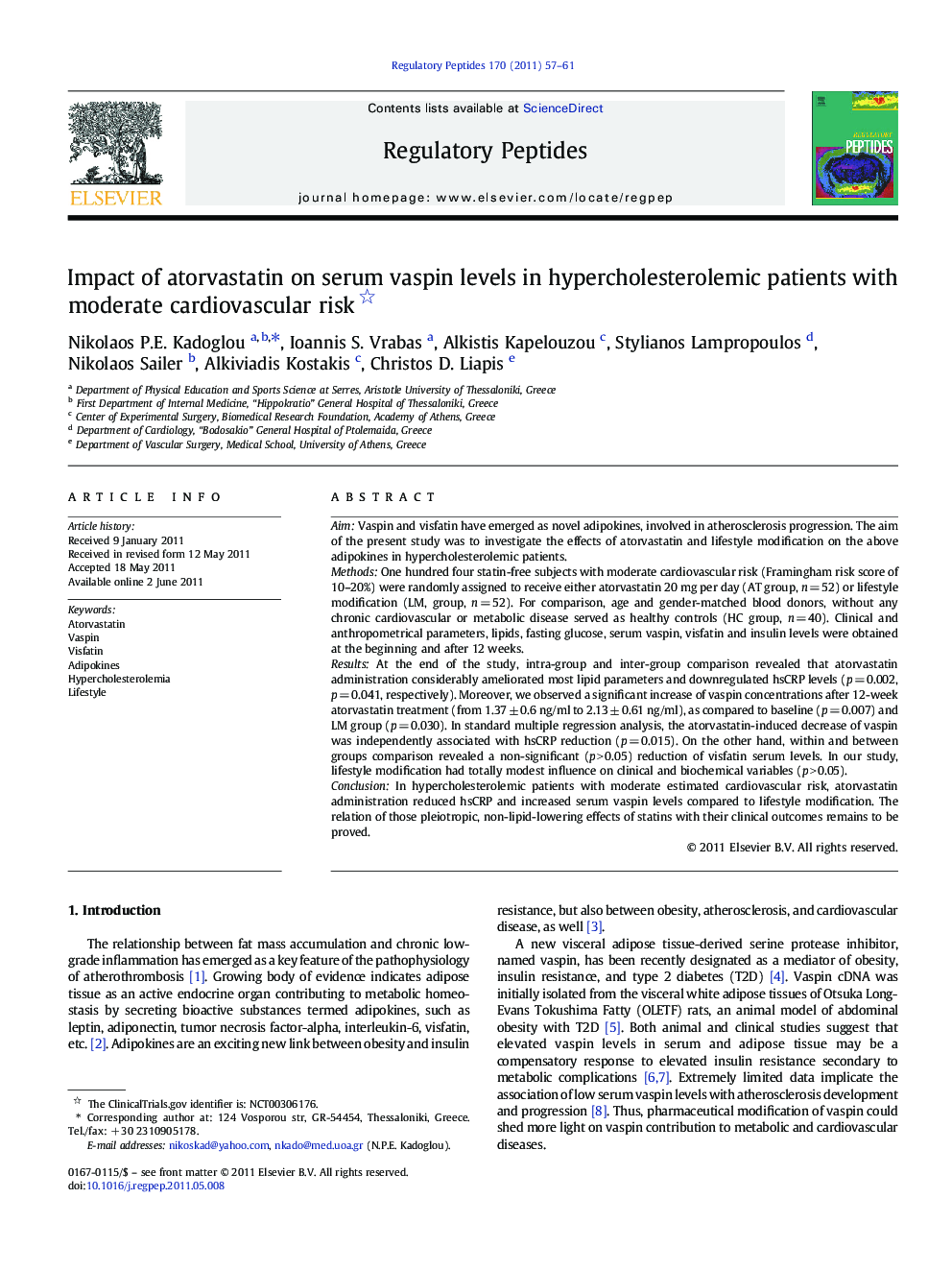| Article ID | Journal | Published Year | Pages | File Type |
|---|---|---|---|---|
| 2022599 | Regulatory Peptides | 2011 | 5 Pages |
AimVaspin and visfatin have emerged as novel adipokines, involved in atherosclerosis progression. The aim of the present study was to investigate the effects of atorvastatin and lifestyle modification on the above adipokines in hypercholesterolemic patients.MethodsOne hundred four statin-free subjects with moderate cardiovascular risk (Framingham risk score of 10–20%) were randomly assigned to receive either atorvastatin 20 mg per day (AT group, n = 52) or lifestyle modification (LM, group, n = 52). For comparison, age and gender-matched blood donors, without any chronic cardiovascular or metabolic disease served as healthy controls (HC group, n = 40). Clinical and anthropometrical parameters, lipids, fasting glucose, serum vaspin, visfatin and insulin levels were obtained at the beginning and after 12 weeks.ResultsAt the end of the study, intra-group and inter-group comparison revealed that atorvastatin administration considerably ameliorated most lipid parameters and downregulated hsCRP levels (p = 0.002, p = 0.041, respectively). Moreover, we observed a significant increase of vaspin concentrations after 12-week atorvastatin treatment (from 1.37 ± 0.6 ng/ml to 2.13 ± 0.61 ng/ml), as compared to baseline (p = 0.007) and LM group (p = 0.030). In standard multiple regression analysis, the atorvastatin-induced decrease of vaspin was independently associated with hsCRP reduction (p = 0.015). On the other hand, within and between groups comparison revealed a non-significant (p > 0.05) reduction of visfatin serum levels. In our study, lifestyle modification had totally modest influence on clinical and biochemical variables (p > 0.05).ConclusionIn hypercholesterolemic patients with moderate estimated cardiovascular risk, atorvastatin administration reduced hsCRP and increased serum vaspin levels compared to lifestyle modification. The relation of those pleiotropic, non-lipid-lowering effects of statins with their clinical outcomes remains to be proved.
► Vaspin and visfatin constitute novel adipokines which are involved in metabolic and cardiovascular diseases. ► We examined the effects of atorvastatin and lifestyle intervention on their levels in hypercholesterolemic patients with moderate estimated cardiovascular risk. ► Atorvastatin treatment rather than lifestyle modification increased vaspin serum levels. ► That effect was independently associated with the atorvastatin-induced reduction of hsCRP. ► Both therapeutic modalities had no effect on visfatin serum levels.
